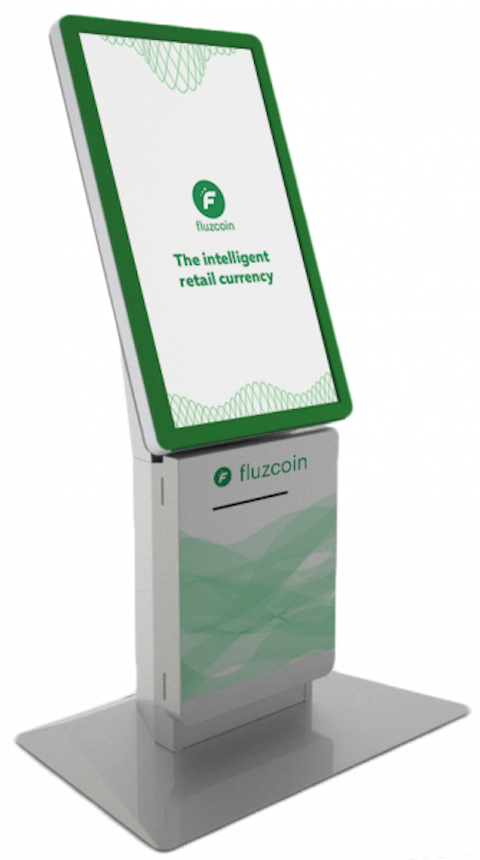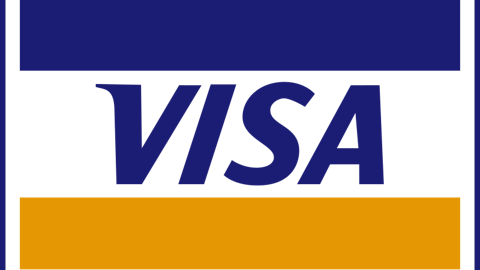Blockchain technology has caused waves across multiple industries ever since it was introduced with experts and analysts forecasting that it could be the biggest disruption since the commercial launch of the Internet. However, no industry is expected to be as affected by blockchain as finance – one of the main reasons being that blockchain was originally developed as the technology that allows the existence of cryptocurrencies. Fintech uses technology to improve financial activities and cryptocurrencies have a similar purpose.
When bitcoin started to become more mainstream, i.e. started to be used in legal transactions, there were a lot of voices expressing concerns that it will replace fiat currencies and, eventually, will disrupt payment processing companies like Paypal Holdings Inc (NASDAQ:PYPL), Square Inc (NYSE:SQ), or Stripe, as well as credit card networks like Visa Inc (NYSE:V) or Mastercard Inc (NYSE:MA). After Bitcoin, a lot of other cryptocurrencies started to appear, many of which had similar properties and could be used for the same purpose of facilitating transactions (such as Litecoin). This reinforced the view that cryptocurrencies would soon become the go-to medium of exchange between merchants and customers.
There are good reasons to expect cryptocurrencies to replace fiat money. Using cryptocurrencies give some advantages to retailers compared to payment processing companies like Paypal Holdings Inc (NASDAQ:PYPL) or Square Inc (NYSE:SQ) and credit card companies (Visa Inc (NYSE:V), Mastercard Inc (NYSE:MA), etc.). For one, the fees in cryptocurrency transactions can be much lower compared to other payment methods. Also, the data breaches at Home Depot (in 2014) and Target (in 2013) are still fresh in our minds and cryptocurrencies offer more security and privacy, since they are decentralized and provide some anonymity.
So, as Bitcoin was getting more and more attention with a bunch of major companies, including Overstock and Expedia adopting it and other cryptocurrencies as payment methods, it was also becoming more expensive and so did other cryptocurrencies. In a way, Bitcoin and altcoins (the name given to cryptocurrencies other than Bitcoin) became a victim of their own success, because a high value made them inconvenient for small transactions and created a lot of volatility. In this way, instead of disrupting the payment processing industry, cryptocurrencies threw more business in their way. Now, when a merchant accepts a payment in Bitcoin, it uses services provided by Paypal Holdings Inc (NASDAQ:PYPL) or Square to convert the amount in fiat money right away in order to protect itself from fluctuations in the value of the cryptocurrency. In addition, the merchant is far more likely to use PayPal and Square Inc (NYSE:SQ) for transactions in Bitcoin due to the protection they offer in case a dispute has to be settled.
To sum up, Bitcoin is unlikely to affect PayPal, Square, as well as large credit card companies like Visa Inc (NYSE:V) or Mastercard Inc (NYSE:MA), because even though some merchants adopt it, the volume of Bitcoin transactions is very small and most retailers that accept cryptocurrencies are converting them on the spot. Bitcoin has a lot of kinks to work out, before it becomes appealing for retailers.

However, there is one cryptocurrency that might reshape the relationship between cryptocurrencies and retailers and, aside from increasing the adoption rate of cryptocurrencies among merchants, could also pose a threat to Paypal Holdings Inc (NASDAQ:PYPL), Square Inc (NYSE:SQ), as well as Visa and Mastercard. The cryptocurrency in question is called Fluzcoin and the main thing you should know about it is that it is developed specifically for retail transactions, thus eliminating many of the disadvantages posed by Bitcoin and focusing on advantages that cryptocurrency transactions bring to the table.
Fluzcoin’s main feature is its EUNOMIA Foundation, which regulates the supply and demand of the cryptocurrency in order to control the volatility. With lack of volatility, merchants and consumers will be more inclined to use Fluzcoin and benefit from zero-fee transactions, high transaction speeds, privacy and know-your-customer systems that will make Fluzcoin compliant with rules and regulations.
Fluzcoin is based on the Quorum blockchain, which is owned and developed by JPMorgan Chase & Co. (NYSE:JPM) and was forked from Ethereum. In March Reuters reported that JPMorgan is considering spinning-off Quorum, which should make it more independent. Under the blockchain rules, merchants will operate nodes (i.e. add new head-blocks to the ledger). Customers benefit from privacy that Quorum has, as it has adopted the Zcash algorithm that hashes transactions. In addition, Quorum is a permissioned blockchain, therefore, users must register and provide some ID and other papers in order to obtain a public key that allows them to make transactions, which makes Fluzcoin compliant with KYC rules.
The EUNOMIA Foundation acts as a central bank in the Fluzcoin ecosystem. It will be hands-on with respect to compliance and transparency of the Fluzcoin Reserve. The surplus of proceeds from Fluzcoin will be held in the Fluzcoin Reserve that will use a passive investment strategy and allocate the capital towards ETFs. The strategy will be fully automated and will be modeled on the investment philosophy of central banks and sovereign wealth funds.
The EUNOMIA Foundation will also be responsible for smoothing the supply and demand of coins via the Fluzcoin algorithm. The AI algorithm will monitor the supply and demand and will adjust the liquidity respectively. If in the case of Bitcoin, an increase in demand leads to a price increase, in Fluzcoin’s case, the EUNOMIA Foundation will issue more coins. And, vice-versa, if the supply is higher than the demand than the quantity of coins will be reduced to prevent a decline in value. While developers are aiming to make Fluzcoin a cryptocurrency with low volatility and very low inflation (close to 0%), its value is expected to grow with the demand through new coins being issued.
In addition to offering merchants and consumers a way to conduct transactions, EUNOMIA also offers a sort of dividend to Fluzcoin holders. While EUNOMIA acts like a central bank and issues new coins through the Fluzcoin Algorithm, they are not owned by it, but are issued directly to holders. At the same time, when the liquidity has to be reduced, coins are bought back from holders through open-market transactions using the Fluzcoin Reserve or retired for a while through the issuance of Fluzcoin denominated bonds.
In this way, Fluzcoin aims to become a convenient cryptocurrency for both merchants and consumers and once it gets adopted by more merchants, it will disrupt the operations of Paypal Holdings Inc (NASDAQ:PYPL), Square Inc (NYSE:SQ), and other payment processors. According to Stefan Krautwald, Chief Commercial Officer, merchants have expressed high interest in a cryptocurrency capable of retail usage. In addition, since holders of Fluzcoin get dividends through newly issued coins, it might become more appealing than Visa Inc (NYSE:V) or Mastercard Inc (NYSE:MA), which offer cashbacks and other loyalty programs.
Fluzcoin is currently preparing to conduct an ICO that will release the initial amount of coins. It does not start from zero, but already has some initial demand that comes from its partnership with Fluz Fluz, a cryptocurrency cashback network that has a network of retailers in Colombia and has recently entered the US market. You can visit the official Fluzcoin.io website to find out the details of their offering.
Disclosure: The opinions expressed in this article are Insider Monkey’s writer, Alex Oleinic’s. Alex doesn’t have positions in Paypal Holdings Inc (NASDAQ:PYPL), Square Inc (NYSE:SQ), Visa Inc (NYSE:V), Mastercard Inc (NYSE:MA), JPMorgan Chase & Co. (NYSE:JPM) and other stocks mentioned in the article. Insider Monkey received compensation in exchange for publishing this article. Insider Monkey doesn’t recommend purchase/sale of any securities, cryptocurrencies, or ICOs. Please get in touch with a financial professional before making any financial decisions. You understand that Insider Monkey doesn’t accept any responsibility and you will be using the information presented here at your own risk. You acknowledge that this disclaimer is a simplified version of our Terms of Use, and by accessing or using our site, you agree to be bound by all of its terms and conditions. If at any time you find these terms and conditions unacceptable, you must immediately leave the Site and cease all use of the Site.




